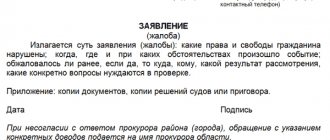Terrible revenge - a modern version
An employee of one of the private companies, Alexey, outraged by salary delays, nagging from his superiors and unfair dismissal, took revenge on his boss with creativity and scope.
He created profiles on the dating site of several social networks, posted there the boss’s personal information and photographs, and provided his real place of work and contact numbers. To make things even more painful, the offended employee announced his former boss’s non-traditional sexual orientation and even attached some videos, supposedly as proof.
He probably went too far in his desire to annoy his hated boss. The idea, of course, is brilliant: revenge is sophisticated, does not require costs, the target is struck inevitably and swiftly.
Alexey anticipated that the news would spread across the networks instantly, the boss would turn to the administration of the networks and sites with a demand to block fake accounts and urgently delete records. The administration, as usual, will react with a delay, and all this time the rumor will be buzzing, nerves will be spent, reputation will suffer, and friends and acquaintances will stay away. All this is true, but the boomerang can return to the author of the revenge action if his involvement can be proven. He shouldn't hope that they won't look too hard.
They will, and how! They will attract specialists, determine IP addresses, restore correspondence on social networks, and take any other measures. And if the author is identified and his guilt is proven, then this trick could cost him dearly.
He cannot avoid a lawsuit regarding honor, dignity and business reputation, demanding compensation for all types of damage caused. It won't seem enough! So was it worth starting all this without thinking about the consequences?
If the employer is wrong, it is, of course, not good to let him get away with it. But breaking the law in this case is categorically not recommended, because it is more expensive for yourself.
Where is the best place to complain?
You can submit your application at:
- GIT (labor inspection).
- The prosecutor's office.
- Court.
It all depends on the severity of the employer’s “crime” against the employee and on whether there have been previous refusals in other authorities in the case considered.
It makes sense to contact the State Tax Inspectorate if you need to bring an official to administrative responsibility with the issuance of an order or a fine.
The advantage of such an appeal is the observance of confidentiality; it is possible, with a certain agreement with the GIT employee, not to disclose the information and name of the applicant. (Article 6 No. 59 of the Federal Law - a ban on persecution of a citizen who has written a complaint.
According to clause 2, it is prohibited to disclose the applicant’s personal data).
The court considers the complaint if the employee wants to get a material result. More often this is a long-term non-payment of wages, while a significant amount of debt has accumulated to the employee and he wants to collect it from the company.
You can also reverse management's decision on wrongful dismissal and be reinstated in your position.
A complaint to the prosecutor's office against an employer is justified in case of a serious violation of the Labor Code of the Russian Federation and if there is a reason to initiate a criminal case.
As a rule, this is a massive violation of workers' rights with serious material losses.
https://youtu.be/afxSFzDm0FQ
It is recommended to complain about the arbitrariness of the employer
Industrial conflicts can be of all kinds. And sometimes employees come across such that the management grabs their heads, and the employer often allows himself too much, having finances, connections and administrative resources.
A hired worker goes to work, needing money, and does not have strong defenders behind him. He is vulnerable, and in a conflict with the employer he is most often the injured party. Finding himself in a stalemate, a person does not know where to turn, while in the Russian Federation there are government agencies that he can count on.
Where do we complain and for what reasons?
A conflict with an employer is sometimes so serious that it cannot be resolved peacefully. This is where third-party assistants, especially those in authority, come in handy. These are the labor inspectorate, the prosecutor's office and the court.
These are the main reasons why people go there.
- The employer does not want to enter into an employment contract with the employee.
- Pays money "in black".
- Delays wages or underpays.
- There is a delay in paying sick leave or vacation pay.
- Fires illegally.
- Delays the calculation and issuance of a work book upon dismissal.
- Otherwise, it violates the Labor Code of the Russian Federation.
How to file a complaint and what we expect from it
Whatever authority the employee applies to, he does so in writing. The text of the document must clearly and clearly state the facts, indicate dates and attach evidence, in paper or electronic form. If you contact Rostrud, you can use the portal “Onlineinspection.rf”, it allows you to track the fate of the request.
Anonymous letters are not accepted; you must provide your personal information and contact information. Every complaint must be answered.
If you contact the labor inspectorate, the answer will be a visit of inspectors to the enterprise. They will appear within a month and check the facts. The same period is given to the employees of the prosecutor's office; they, for their part, first check and then react.
The court, as the last resort, considers the employee’s claim against the employer. It can be submitted until 3 months have elapsed from the date of violation. All evidence is attached to the case, including the results of previously taken measures. Both the prosecutor's office and Rostrud present to the court the evidence they have collected in the case, presented as the results of an audit.
The employee hopes that the employer will be ordered to correct the violation. For example, reinstatement at work, pay off everything you owe, and so on.
Working in the dark today can be dangerous
If a person agrees to receive a salary in an envelope, then he puts himself in an obviously losing position. The employer receives almost unlimited power over him: if he wants, he will start paying less, or not pay at all. It will be very difficult to prove that you were not paid for your work. There are no documents, none of my colleagues will come as witnesses.
The only effective way is to contact the tax office, or at least intimidate the employer. If the tax authorities receive a complaint, they will begin checking the employer no later than in a month. However, in this case, not only the owner of the enterprise, but also the complainant himself may suffer.
The tax office is interested in deductions from wages, which should be sent to it. And here questions may arise for the employee. Did he know that the employer does not make deductions from his salary and does not pay taxes?
If he knew, he had to do it himself. If he didn’t know, then bribes are cleared from him, and all the blame falls on the employer.
Based on the results of the audit, tax authorities may come to the conclusion that the employee was in collusion with his employer, and both deliberately did not pay taxes. The consequences for both will be sad: Art. 199 of the Criminal Code of the Russian Federation - for the employer, and for the employee - Art. 198, as amended in April 2020.
It says that if a citizen did not pay personal income tax and did not indicate income in the declaration, then he will have to pay, in addition to the tax, a fine and penalties. The fine will be 100-300 thousand rubles, the violator will face either forced labor, arrest for six months, or imprisonment for up to 1 year - at the choice of the court.
Labor law and its violations
Every citizen of the Russian Federation is guaranteed decent working conditions. The basis of this guarantee is the main document of the country - the Constitution. The Labor Code regulates the relationship between employer and employee. The length of the working day, payment of wages, vacation and other details cannot be changed by the employer independently. This is a violation of current legislation.
Note!
Rostrud, a labor inspectorate, monitors compliance with legal standards in the labor sphere. If citizens have complaints against employers, they must be sent to Rostrud.
Salaries must be paid on time. For non-compliance with the conditions, the employer may receive a fine.
Everything is documented:
- labor regulations;
- work schedule and vacation schedule;
- the amount of wages and the procedure for its payment.
Rostrud monitors compliance with standards. This is an executive body that is responsible for order in the labor sphere and for compliance with laws. Rostrud records the following violations:
- wages are not paid on time;
- wage arrears on the part of the employer;
- Incorrect calculation of salaries and vacation pay.
When drawing up an employment contract, there may be problems associated with violation of the Labor Code. There have been recorded cases where employers refused to issue a work book.
Errors and violations occur upon dismissal. Vacations were rescheduled without the employee’s consent, they were hired to work on weekends without obtaining consent, they were assigned functions that were not included in the instructions without considering consent and suitability, etc.
Some enterprises do not monitor the minimum wage and pay wages less than the established value, which is a direct violation of the Constitution of the Russian Federation.
There were also employers threatening workers and forcing them to do something. This was especially true for enterprises undergoing liquidation proceedings. Not wanting to pay compensation, employers resorted to cunning, persuading and threatening employees to write a letter of resignation “on their own.”
What does a complaint give, and is it worth complaining?
Statistics show that every 5th employee in Russia faces arbitrariness on the part of the employer. The most popular violations are dismissals, layoffs, and delayed wages. It is widely practiced to work without a contract, or the contract specifies minimum rates, and additional payments are made unofficially, in envelopes.
Most complaints were recorded in large cities. Firstly, there are more jobs there, so people have less fear of losing their source of income. Residents of megacities are more informed about their rights, and it is easier for them to decide to take active action.
In small towns and in the provinces there is less work, where people are afraid of losing their job and suffer harassment. And there is little hope for justice here, “everything is captured.”
If there is a trade union functioning at the enterprise, then the best thing to do is to contact them. Trade unions have a wide range of methods of influencing management, the only problem is that there are too few trade union organizations today.
Most complaints still concern wages. But it is difficult to win money litigation against a legally competent employer. Official documents contain only “correct” data, there are no witnesses. And judges do not particularly trust those who were fired earlier, since an insulted person can slander the offender.
It is also difficult to prove the illegality of dismissal, especially when the employee was forced to write a statement of his own free will. It is a little easier to spot violations during staff reductions.
It must be said frankly that employers do not unfairly fire and oppress everyone. Those who fall under the administrative skating rink are primarily violators of routine, those who like to gossip on the sidelines, and not very loyal employees. Sometimes it is a person’s own fault for incurring the wrath of management.
Where to go if an employer violates an employee’s rights
However, these bodies may not exist in a particular organization, or contacting them may not bring the desired result. In addition, dismissed employees, for a completely objective reason, do not have the opportunity to contact the trade union committee or the CTS. In this case, employees have a choice of where to complain about their employer:
- Labor Inspectorate under Rostrud;
- law enforcement agencies represented by the prosecutor's office;
- court.
Filing a complaint with them has one common feature - it cannot be done anonymously. Applications without information about the applicant are not considered by government agencies and no action is taken on the facts described in them. Therefore, the employee must be prepared for the fact that he will have to act against the employer under his own name.
How should an employee behave with an employer?
The line of behavior should be calm, restrained, and friendly. You must constantly monitor your actions, starting from the moment you join the staff.
- You should not agree to work without drawing up a contract, or to accept payment according to gray schemes. In this case, you immediately find yourself in the risk zone.
- If you are still involved in the schemes, then check with the accounting department whether the company transfers contributions and taxes in the proper amount. If not, then pay the personal income tax yourself, this will protect you from tax claims when violations are revealed.
- When entering into conflict with an employer, rely only on yourself. Remember that none of those employees who expressed sympathy and encouragement for you will stand next to you against management.
- Supervisory authorities are obliged to respond to your complaint, but they need solid evidence. When getting involved in a war with your superiors, take care of collecting documents, videos and photos confirming that you are right.
- If you are a non-conflict and impressionable person, then it is cheaper for you to silently look for another job. But if you are active, passionate and convinced that you are right, then fight! Just make sure that the pursuit of justice does not push you beyond the laws of the Russian Federation.
https://youtu.be/cT7w-0rmxfE
Contents of the complaint
An employer has no right to be aggressive!
Usually the complaint is drawn up in free form, but with several significant points indicated:
- The name of the body where it is submitted
- Contact details of the applicant (full name, address, telephone)
- Correct name of the employing organization
- It is also good to indicate the legal address of the organization, TIN (if possible), full name of the head
- The substance of the complaint (what rights were violated, confirmation of one’s innocence, availability of evidence, witnesses, etc.)
- Information about whether attempts were made to resolve the controversial situation through consideration within the organization (with the manager, through the trade union)
- When contacting law enforcement agencies, it is advisable to indicate the signs of an offense or crime (if any).
It is important to remember that anonymous requests and complaints have the right not to be considered by the competent authorities. If an employee does not want his name to appear when considering a complaint, he can write this in his appeal, however, for a number of reasons, it may be impossible for the prosecutor’s office or the police to resolve the case without mentioning him.
The labor inspectorate most often grants the employee’s request and can conduct an inspection without indicating the applicant.








